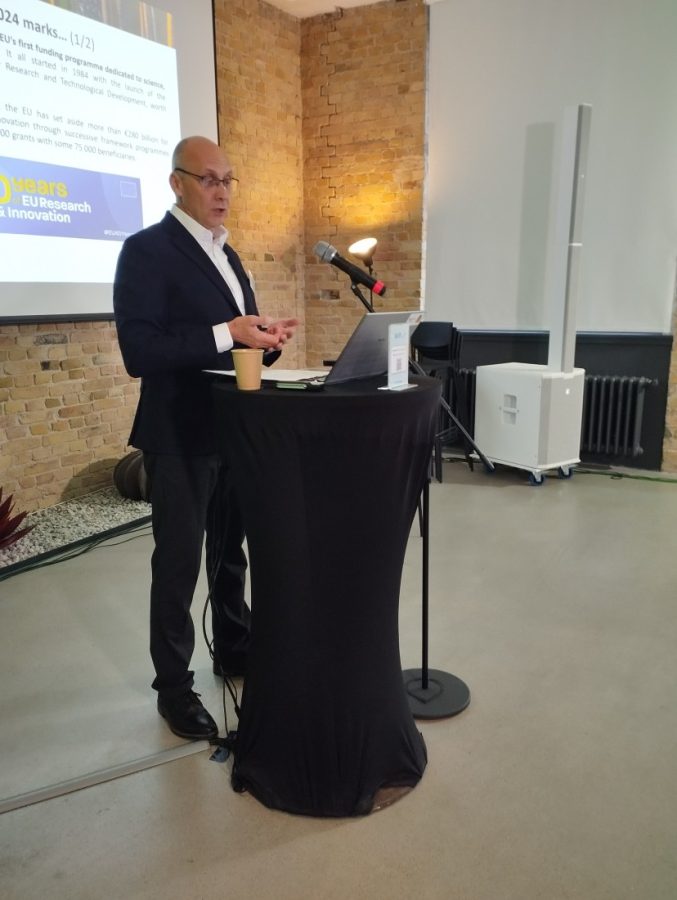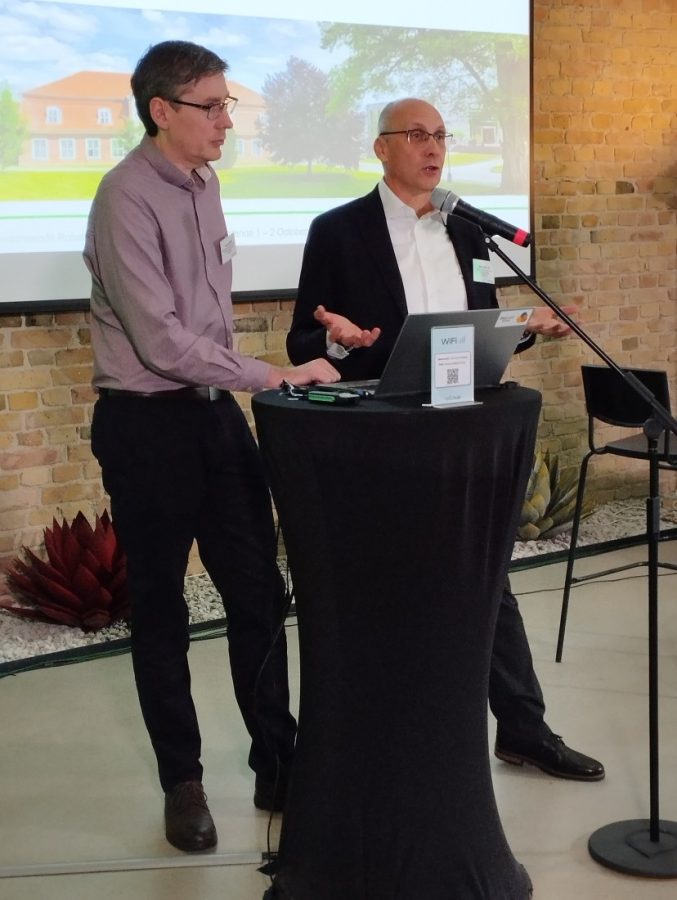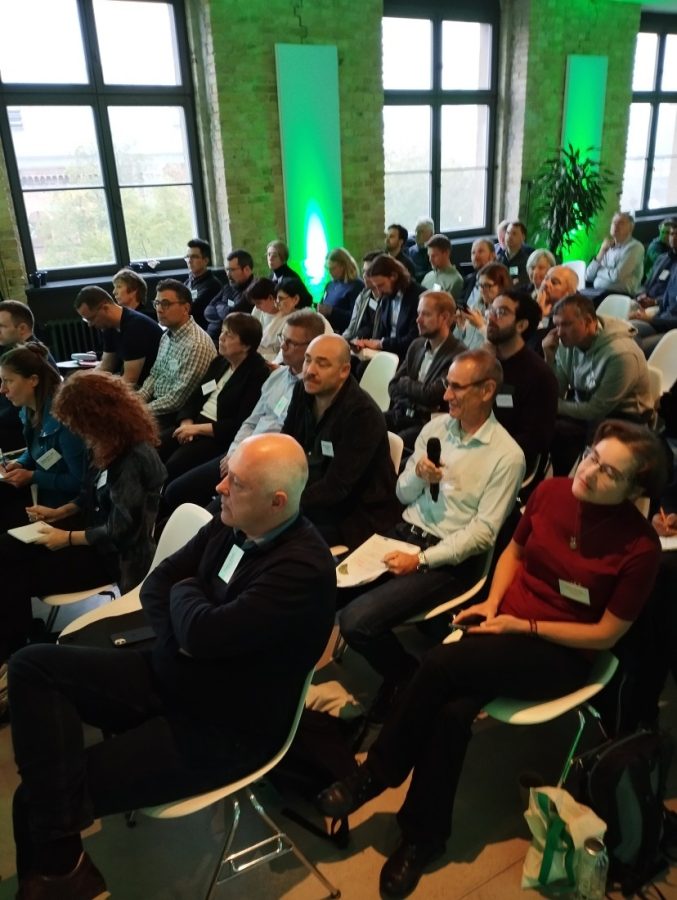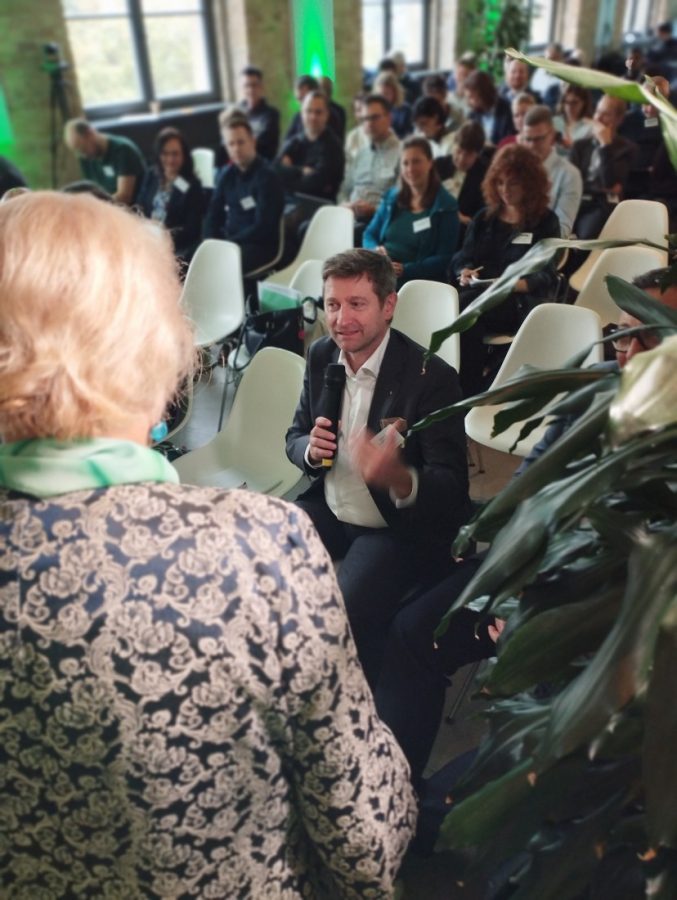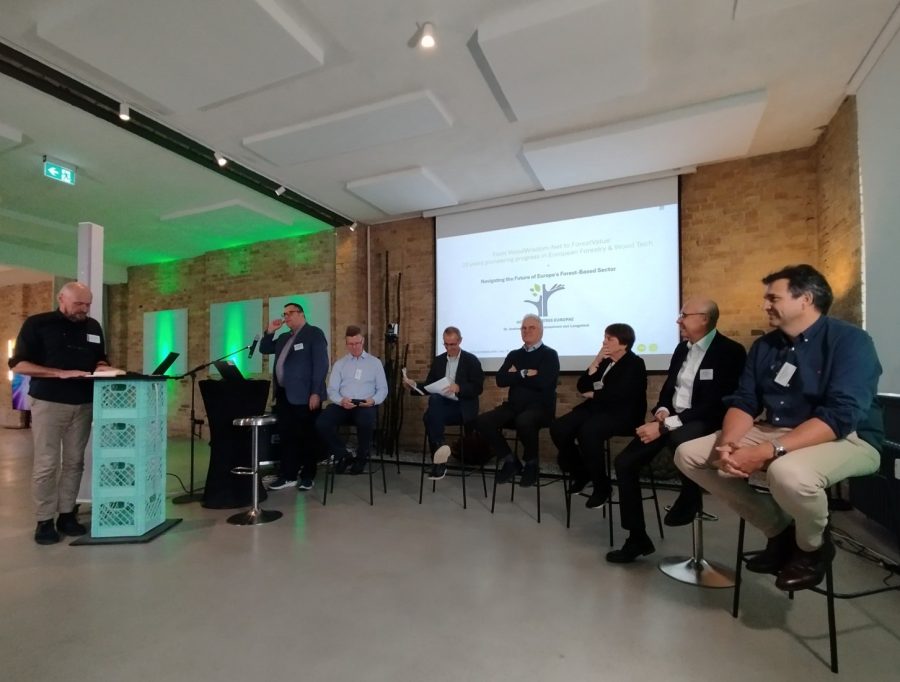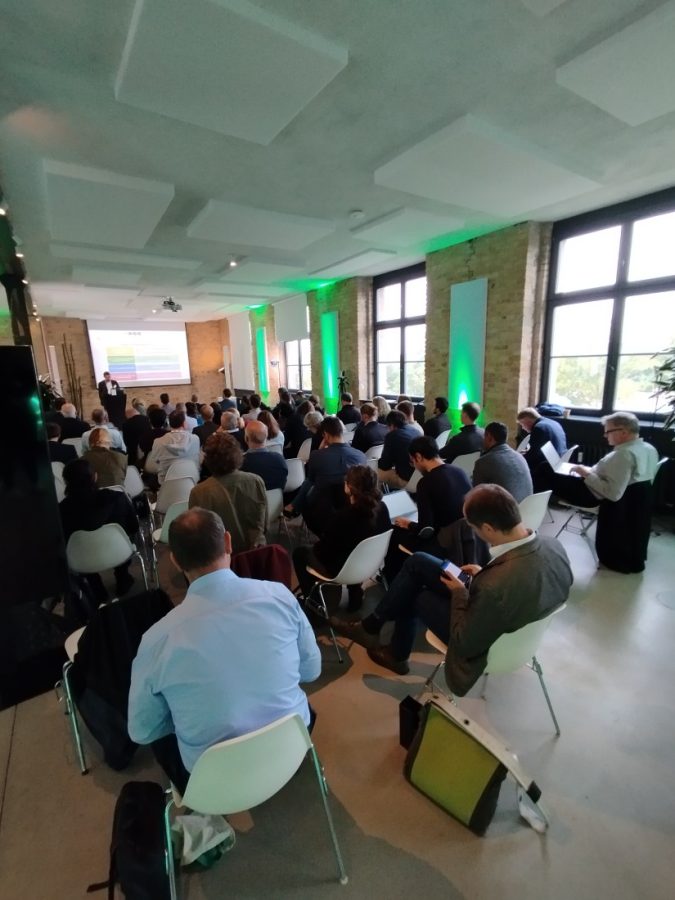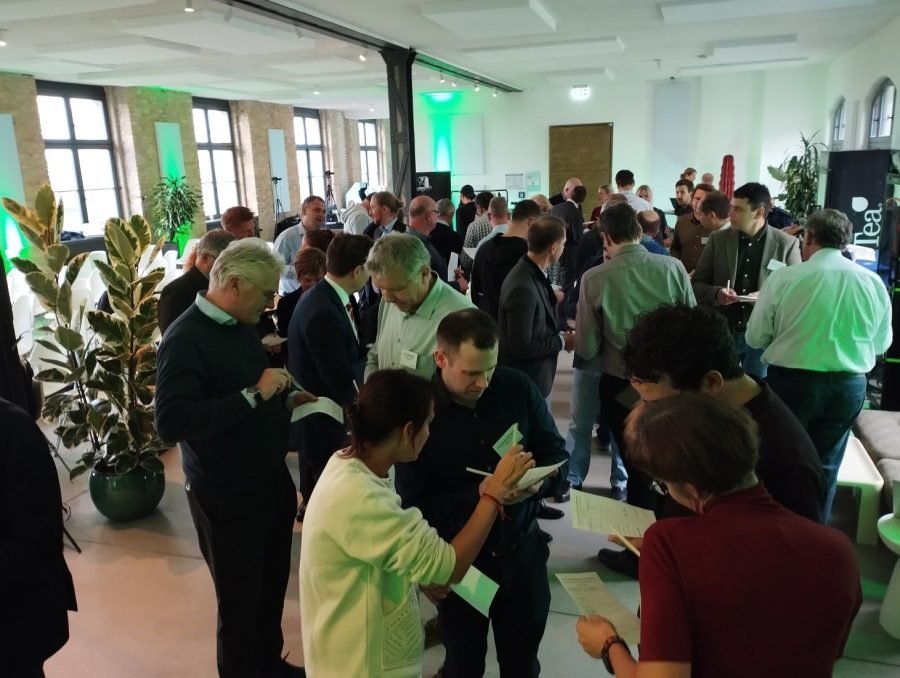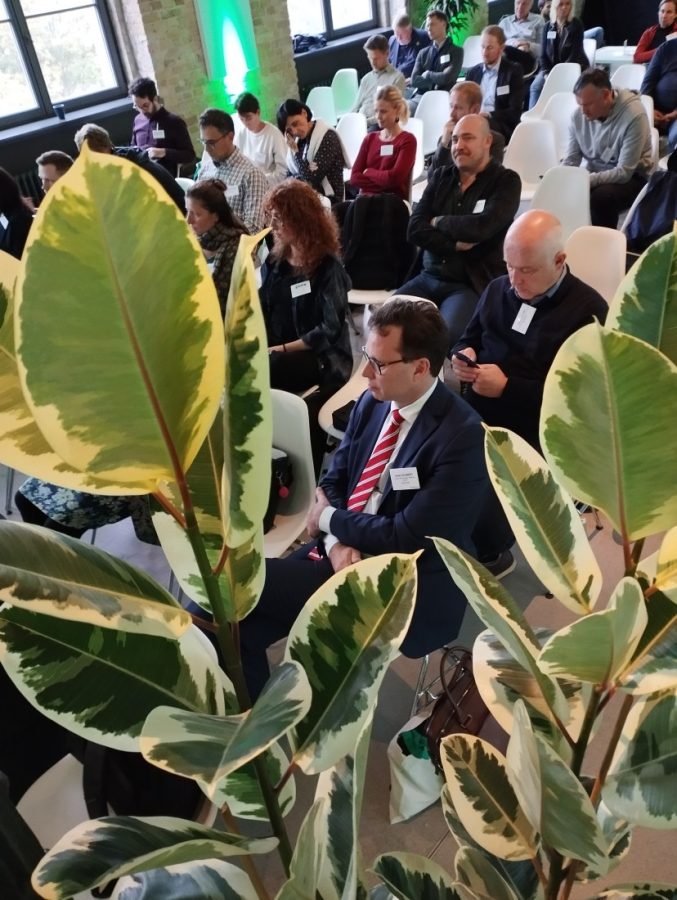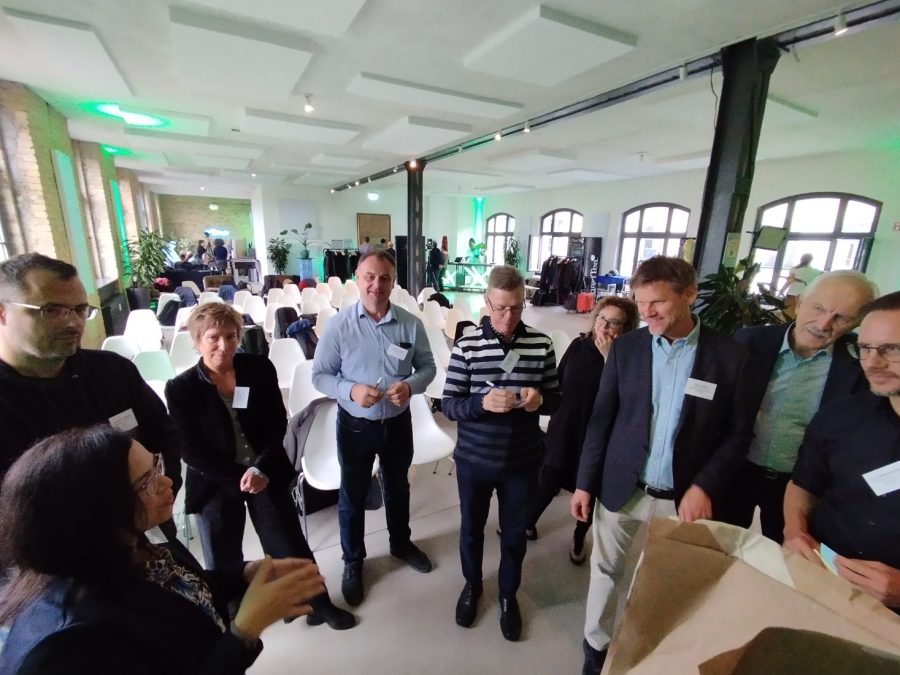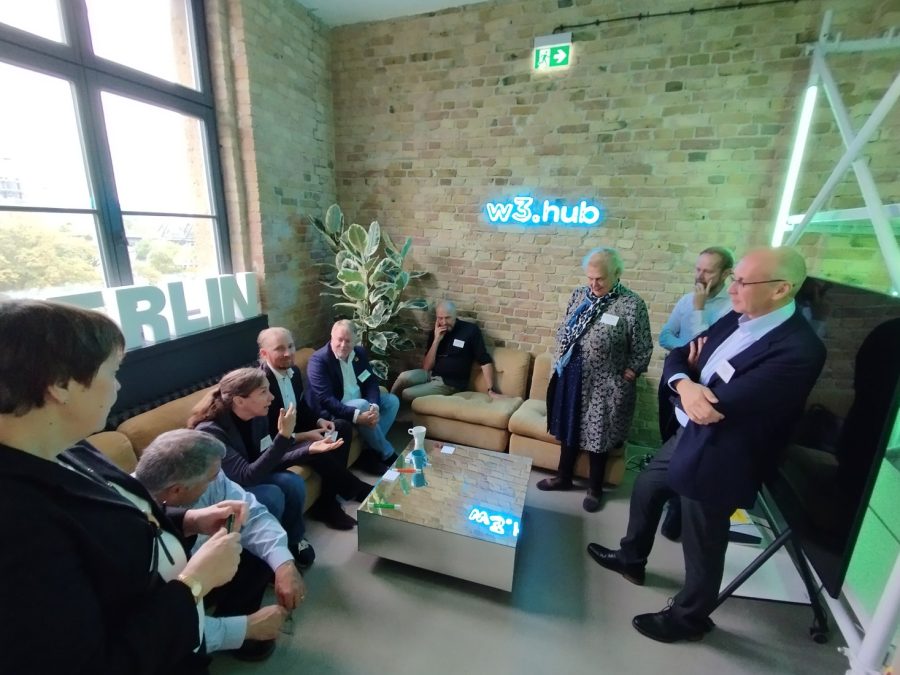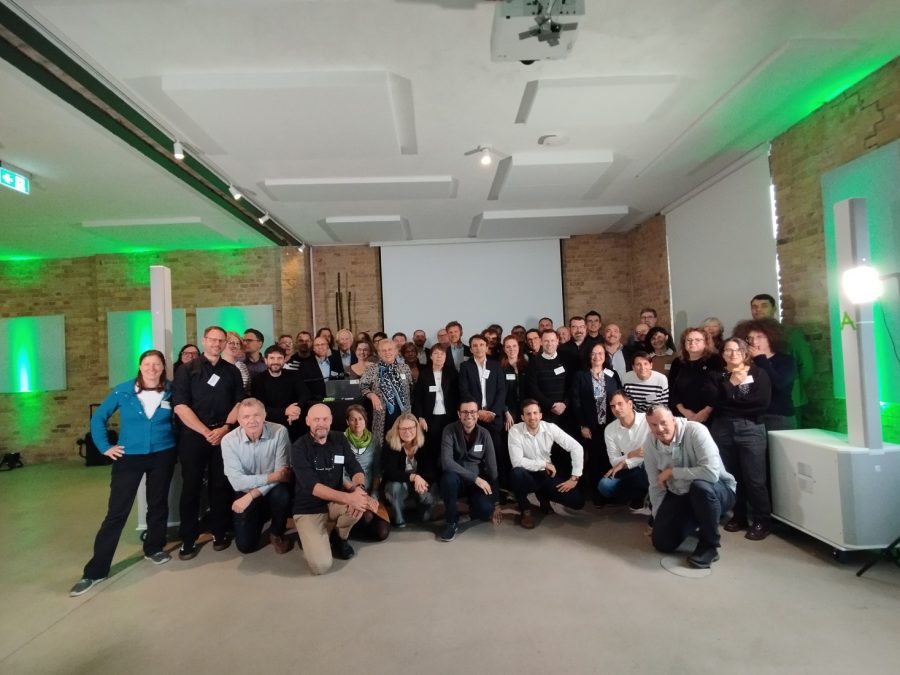The two-day ForestValue 2 Conference From WoodWisdom-Net to ForestValue – 20 years of pioneering progress in European Forestry & Wood Tech held on October 1–2, 2024, in Berlin, marked a significant milestone in European forestry and wood technology, celebrating 20 years of pioneering progress from WoodWisdom-Net to ForestValue. Industry leaders, researchers, policymakers, and stakeholders gathered to review past achievements and explore the future of the forest-based bioeconomy. The event featured a dynamic blend of presentations, panel discussions, and interactive sessions focused on driving transformations, showcasing innovative research, and forging new partnerships for a sustainable future.
Day 1: Celebrating Two Decades of Progress in Forest-Based Bioeconomy
Morning Highlights:
The conference kicked off with chair Tony Quinn, (Forest Inspector at DAFM, Ireland) and a session on “Driving Transformations of the Forest-Based Bioeconomy.” Tilman Schachtsiek of BMEL welcomed participants, followed by Mika Kallio (MMM, Finland) the coordinator of Horizon Europe CSA project ForestValue2 who presented a comprehensive overview of two decades of European forestry funding. The audience was also addressed via video message by Silvia Abad, an EU Project Officer at European Research Executive Agency (REA), highlighting the EU’s continued commitment to forestry innovation.
Industry Insights:
Johan Elvnert from the Forest-Based Sector Technology Platform discussed opportunities for success in the sector, emphasizing the role of industry in unlocking bioeconomic potential.
Historical Review:
Post-coffee, Baiba Rivza of the Latvian Academy of Agricultural and Forestry Sciences reviewed the network’s history from a funder’s perspective, emphasizing its evolution over the years. The session also featured a variety of groundbreaking projects, including the TES EnergyFacade (Frank Lattke) and the I-MAESTRO project (Christopher Reyer), which addressed prefabricated renovation systems and strategies for forest resilience under climate change.
Other notable presentations included Tobias Stern’s analysis of societal perceptions of the forest sector through the W3B Wood Believe project and Alfred Kammerhofer’s introduction of the WoodPOP Initiative, which influences forestry policy at national levels.
Afternoon Highlights:
The event’s interactive segment allowed for speed networking, promoting connections between researchers and industry professionals, while the afternoon featured a thought-provoking panel discussion moderated by Rune Groven from RCN, Norway.
Panel Discussion – Nostalgic for the Future:
Keynote speaker Andreas Nikolaus Kleinschmit von Lengefeld gave an insightful speech on the future of forestry over the next 20 years, exploring whether Europe’s sector is prepared for the challenges ahead. The panel featured past coordinators of pivotal projects like WoodWisdom-Net, SUMFOREST and FORESTERRA (Christine Hagström-Näsi, Ilmari Absetz, Mika Kallio, Martin Greimel, David Gonzales) but also Andreas Nikolaus Kleinschmit Von Lengefeld (Homo Silvestris Europae, CEO/owner) and Wolfgang Wittke (EC project officer for WoodWisdom-Net in 2004), who shared their experiences and reflections on 20 years of innovation.
The day concluded with an exclusive networking dinner aboard a boat, where participants continued discussions in a relaxed and scenic setting along Berlin’s waterways.
Day 2: Innovations in Forestry and Wood Technology
Morning Highlights:
Chair: Carina Lemke (FNR, Germany) began Day 2 with a recap of the key discussions from Day 1, after which the spotlight shifted to innovative research projects.
Innovative Forestry Research:
The first session showcased cutting-edge projects such as ForestMap (Johan Fransson), which is adapting successful Nordic forest mapping methods globally, and FORECO (Anja Rammig), focusing on forest recovery from environmental threats. SustMultBiomass (Tord Snäll) explored sustainable biomass use, while projects like IFORPLAN (Andrej Boncina) and Assess4EST (Rosario Garcia Gil) presented advanced forest management tools.
Interactive session:
A key highlight of Day 2 was the Scientific Café, an interactive, workshop-style session where participants engaged in small group discussions to tackle three important questions related to project management in the forestry sector:
- What makes a good consortium that implements the project effectively?
Discussions focused on how to build strong, well-coordinated teams. Participants emphasized the importance of clear communication, trust among partners, and strategic leadership by the project coordinator to ensure active cooperation. - What is the key to a good proposal?
Attendees shared insights on crafting compelling proposals, noting that clarity, alignment with funding priorities, and a strong innovation narrative are crucial to success. - What social skills have you developed while working in project management?
This reflective question explored the personal development of project managers, with many citing improved communication and conflict resolution skills. However, some acknowledged the negative impacts, such as increased perfectionism and reduced tolerance, highlighting areas for further growth in leadership and emotional intelligence.
This session provided a valuable platform for knowledge exchange and helping attendees improve their project management skills. You can learn more about the workshop results here.
Afternoon Highlights:
The afternoon sessions covered Life Cycle Assessment (LCA) of Wood Construction and further research in forestry technologies.
LCA of Wood Construction:
Highlights included the CRESTIMB project (Stefania Fortino), which is improving the service life of timber building systems, and TiREX (Katarzyna Ostapska), which focuses on assessing reclaimed timber to extend its usability. WoodLCC (Philip Bester van Niekerk) introduced innovative methods for service life planning of wood structures, essential for sustainable construction.
Forestry & Wood Technologies:
The final session highlighted projects like LEARNFORCLIMATE (Karin Beland-Lindahl), which aims to realize multiple policy objectives under climate stress, and BarkBuild (Ievgen Pylypchuk), exploring tree bark as a renewable resource for wood protection in construction. SOSFOR (Matteo Vizzarri) addressed sustainable operating spaces for European forests, and WOODforHEALTH (Pekka Kilpeläinen) focused on promoting antimicrobial wood surfaces for health buildings.
Closing:
The event wrapped up with a summary of key takeaways by Mika Kallio.
Conclusion: A Vision for the Future of European Forestry
The 2024 ForestValue2 Conference celebrated 20 years of groundbreaking research and collaboration, highlighting the pivotal role of European forestry and wood technologies in building a sustainable bioeconomy. As Europe looks forward to the next 20 years, the innovations and partnerships forged at the conference will serve as a strong foundation for meeting the challenges of climate change, resource management, and sustainable development.
You can watch all the presentations and live recordings from the conference on the official website here: ForestValue Berlin Conference.
